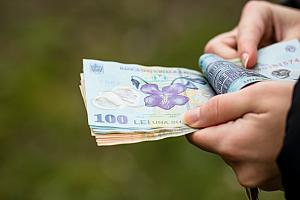High inflation and economic growth or low inflation and recession? Pick your 2023 poison

Guest writer Andrei Buruiana analyzes the connection between inflation and economic growth and how fighting the first could impact the second.
As 2022 just ended, all eyes are now on 2023. Most people are wondering what 2023 will be like for the economy.
Last year saw record price increases but the recession has been avoided. Now, the question is whether or not we will continue with high inflation in 2023, and whether the economy will continue to grow or we will have a recession instead.
There is a correlation between the two (i.e. inflation and recession) and it is quite simple, depending on the monetary and fiscal policies applied.
Specifically, if central banks raise interest rates too much, they limit inflation but risk pushing the economy into recession.
Recession, as a simple definition, implies GDP contraction in two consecutive quarters.
In a recession, the performance of the economy declines for an extended period of many months, resulting in a contraction of GDP, higher unemployment rates, lower consumer spending, and weakened economic activity, such as lower production of goods and services and lower consumer demand.
The major risk of a recession is that some companies may not be able to absorb the shock of high interest rates on loans (cost of financing), coupled with reduced sales, thus being forced to lay off employees.
On the other hand, central banks could minimize their intervention on interest rates, thus perpetuating inflation for longer.
Inflation (i.e. a general rise in prices) affects the entire population, eroding everyone's purchasing power, with an augmented effect on one particular category of the population, namely low-income earners. This is because expensive products account for a larger share of their consumption basket.
So, the answer to the question in the title is simple and represents a dilemma for most states in 2023, including the US, where Fed economists are forecasting economic growth at only 0.5%. The percentage is quite fragile and any anomaly can bring it below zero. That means recession.
There are a few schools of thought:
1. Better to have a recession with low inflation than high inflation, under the argument that recession affects a tiny percentage of the population;
2. Quasi-perpetual and moderate inflation is better than recession because it avoids massive layoffs;
3. A middle way, a "soft landing", in which the fight against inflation is combined with aid or tax cuts for disadvantaged population groups.
Arguments for option 1 - recession and low inflation
Recessions tend to be relatively short-lived reductions in economic growth, whereas if inflationary expectations become entrenched, they could lead to inflationary spirals.
If an inflationary spiral takes hold, it can wreak havoc on an economy. Imagine all your savings losing tens of percent of their real value (I.E. adjusted for inflation). Imagine having to pay 50 Ron for a cafe latte. This highly destructive inflationary spiral has occurred in countries like Brazil, where it has caused multiple problems from which the country's economy has yet to fully recover.
Arguments for option 2 - perpetuating moderate inflation and avoiding recession
Here the main argument is that jobs are saved and unemployment does not rise.
Another argument is that inflation, in the short run, and at an economy-wide level, works under the zero-sum game principle, in the sense that an increased price is paid by one consumer, but at the same time is received by another. In the case of the recession, however, the recession itself puts high pressure on aggregate incomes.
Also, in recessions, economically speaking, businesses may close or suffer, making the economy operate below its potential.
Arguments for option 3 - "soft landing"
Under this option we are talking about a concerted approach, fighting inflation with monetary policies while using fiscal stimulus to mitigate or alleviate the negative effects for some segments of the population.
Fiscal policy can help mitigate the impact of a recession (fiscal support being economically stimulative), but only in the short term.
Returning to the question in the title, it depends on who the respondent is, in which segment of the economy they work, and in which income bracket they fall.
Inflation is more likely to affect all of us, especially those on low incomes.
A recession, on the other hand, could affect those working in economic sectors vulnerable to recession such as HoReCa (hotels, restaurants, catering), consumer discretionary goods (electronics, household appliances etc.), and small and medium-sized companies that do not possess the scale advantage that large companies have.
The lack of economies of scale leaves the vast majority of small businesses with fewer financial resources, less market power, and small leverage against a recession.
Lenders know this. They will be less enthusiastic about lending to a business that does not have significant cash reserves and assets that can serve as collateral in times of recession.
Unlike listed companies, small businesses cannot usually raise funds by selling shares in a secondary offering or issuing bonds.
And since I got to the subject of the stock market, I'll also take the time to pinpoint the areas that should not be affected by recession or be less affected than others, called "defensive".
Defensive segments are also known as non-cyclical segments because they are not highly correlated with the economic cycle. Below are some types of defensive segments:
Utilities
Water, gas and electricity utilities are examples of defensive segments because people need them in all phases of the economic cycle.
Consumer staples
Companies that produce or distribute basic consumer goods, goods that people tend to buy out of necessity regardless of economic conditions, are generally considered to be defensive. These include food, beverages, hygiene products, tobacco and certain household items.
Healthcare
The stocks of large pharmaceutical companies and medical device manufacturers have historically been considered defensive ones. After all, there will always be sick people who need care.
With the disclaimer that this article is not an investment/divestment recommendation, I wish you all the best in 2023!
by Andrei Buruiana, contributor
 Andrei Buruiană is a seasoned professional in financial services, with 15 years of experience, having covered:
Andrei Buruiană is a seasoned professional in financial services, with 15 years of experience, having covered:
- Investment & Pension Fund Management;
- Retail Banking: Wealth Management & Private Banking, Product Management and Business Planning;
- Project Finance: EU Funds;
- Training & Consulting (currently), covering: Personal Finance, Sales and Ledership.
Andrei is also a content creator and contributor on several Romanian business & economics platforms. He has a Bachelor’s degree in International Business & Economics, from the Bucharest University of Economic Studies.
(Opening photo source: Elnur | Dreamstime.com)













